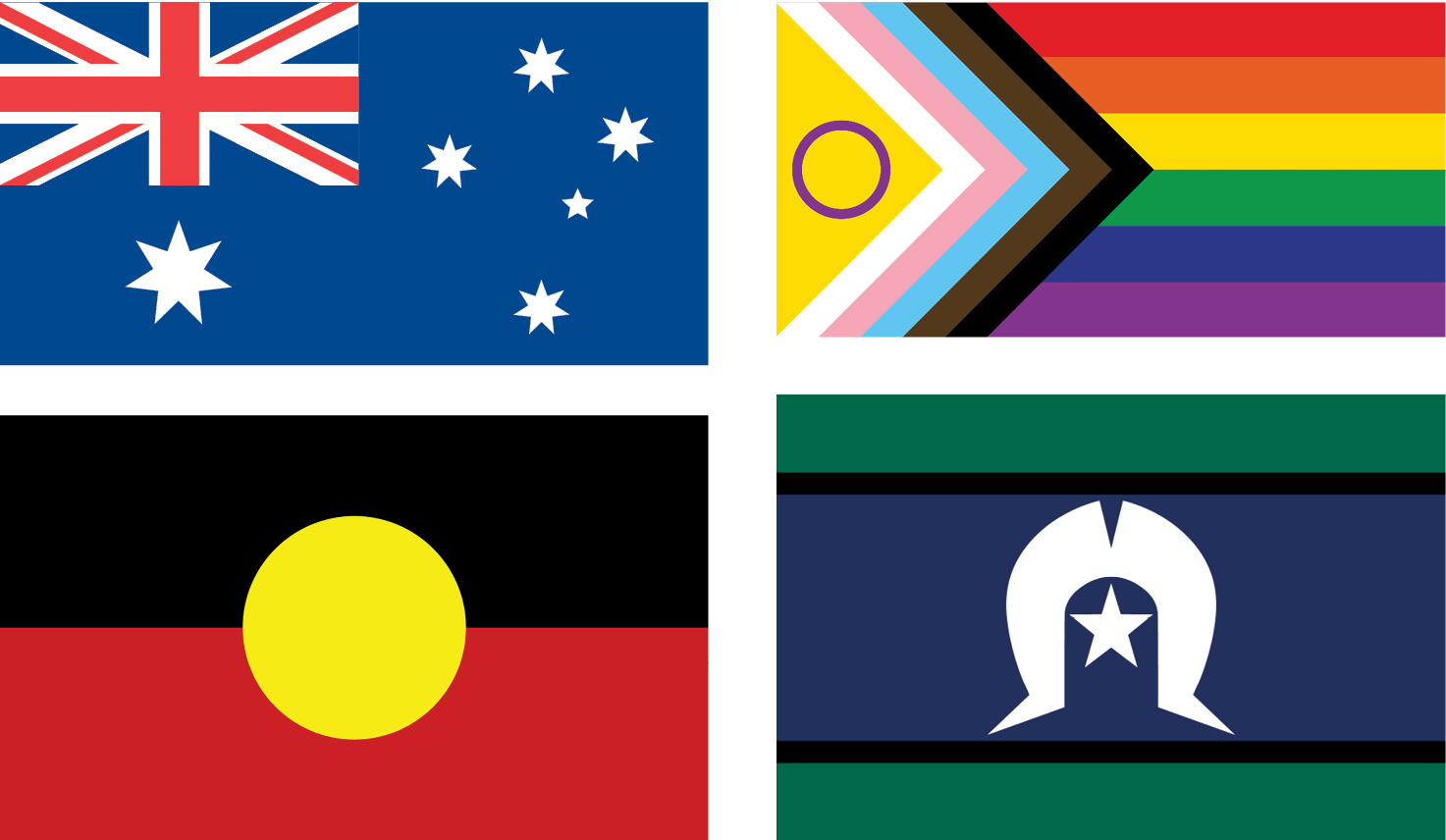Dec 17, 2018
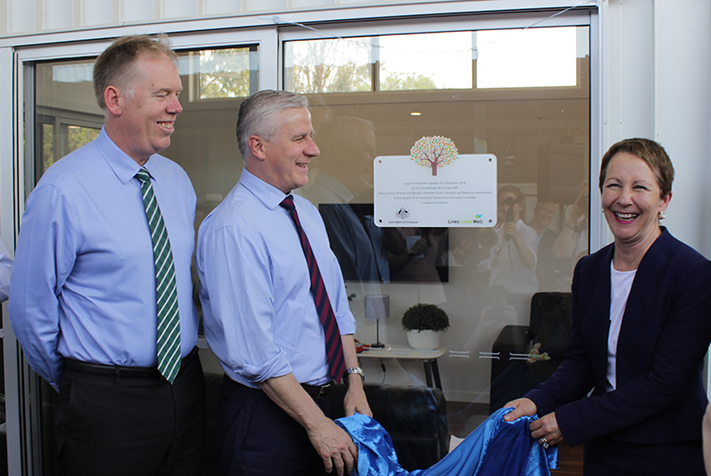
Unveiling the plaque: Deputy Prime Minister and Minister for Infrastructure, Transport and Regional Development, the Hon Michael McCormack, with Federal Member for Forde, Bert van Manen (left) and the Hon Di Farmer, State Minister for Child Safety, Youth and Women and Minister for the Prevention of Family and Domestic Violence.
Queensland families will have access to a unique drug and alcohol support service starting in the new year, following the official launch of our Family Recovery Units at Logan House on 12 December.
The program makes it possible for parents to receive support, while their young children stay with them on site in the two and three-bedroom units.
Parents can access wrap-around support on site at Logan including specialist alcohol and drug counselling and information, group sessions and parenting, life and health support, whilst having appropriate care arrangements set in place for their children.
The opening was jointly conducted by the Hon Michael McCormack, Deputy Prime Minister and Minister for Infrastructure, Transport and Regional Development, the Hon Di Farmer, State Minister for Child Safety, Youth and Women and Minister for the Prevention of Family and Domestic Violence; along with Lives Lived Well Chair Damian Wright. The Federal Member for Forde, Bert van Manen and the Acting Logan Mayor, Cherie Dalley also attended.
The Australian Government invested $986,000 in the construction of the units, jointly funding it with Lives Lived Well, which contributed more than $1M. The Queensland Government has committed to providing $1.7M in funding over three years to support the operation of the family alcohol and drug recovery program at the units.
Speaking at the launch, Mr McCormack said he knew Logan House, set among gum trees in Logan’s rural southwest, would be a special place.
“People will look along this deck at this beautiful view and will see there is hope, there is a future. They will experience the warmth of the counsellors here, people who will share their expertise, their care, their compassion, their love and it will make a difference.”
Lives Lived Well Chair Damian Wright expressed gratitude for the funding support of both state and federal governments.
“This funding allows us to work closely with families to turn their lives around after the harms and disruption of alcohol and drugs,” Mr Wright said.
Dec 17, 2018

Our ICE Help service in Mackay in north Queensland is hosting a family support group for Aboriginal and Torres Strait Islander families affected by methamphetamine use.
The service provides counselling and other supports to family members – regardless of whether the person with the ice dependency is accessing our support. Offering support to families has proven to be a powerful early intervention strategy for our ICE Help service.
Lives Lived Well’s ICE Help service came into effect in April 2017, enabled by funding from the Northern Queensland PHN. From 1 April 2017 to 1 November this year, the service supported 305 clients – made up of a mix of people seeking help for problematic ice use, as well as their families.
Sixty-four per cent of the people seeking help for their own use of methamphetamine were male, while 55 per cent of people seeking help for a family member were female. The most common age range of clients and family members was 18 to 45 years.
Many of the people accessing ICE Help go on to engage with other Lives Lived Well services in Mackay, including psychosocial supports, day withdrawal and outreach. More information about our Mackay services here.
Dec 17, 2018
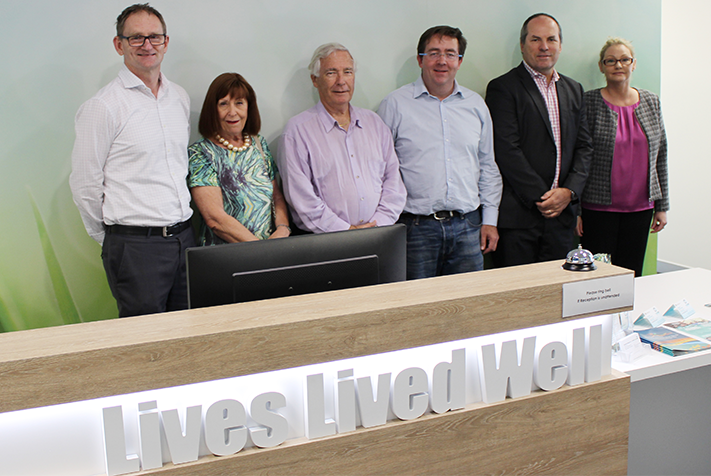
Opening our new space: From, left Lives Lived Well CEO Mitchell Giles, Lives Lived Well Board Members Raylee Taylor and David Tapsall, Senator James McGrath, Lives Lived Well Board Chair Damian Wright and Lives Lived Well Clinical Services Manager Leah Tickner.
Almost immediately after opening the doors of our Brisbane North service early in 2017, our staff were receiving referrals four times higher than predicted. Recognising this high demand for alcohol and drug support services in the region, the Federal Government announced an additional $11M in funding for the service in June 2018. That funding has now been put into action, with the opening of our new service for drug and alcohol support in Caboolture.
The extra funding has enabled Lives Lived Well to significantly boost the level of support we provide to people affected by the problematic use of alcohol and other drugs, including methamphetamine (ice).
Part of this funding will go towards constructing a 20-bed live-in recovery residence, due for completion in 2019.
Lives Lived Well CEO, Mitchell Giles said “the addition of withdrawal and rehabilitation day supports puts extra counsellors in the field and means more support for more people at different stages of their recovery over a longer period.
“Since opening in late 2016, our Brisbane North services have supported 1813 people, including 570 from the Caboolture area. Most named methamphetamine (ice) as their primary drug of concern, with alcohol and cannabis also presenting strongly,” Mr Giles said.
“In some ways this is a positive sign. It means people are recognising that they have a problem and are comfortable in coming forward for support. That step alone takes courage.”
People wishing to access our support services can refer themselves online or phone 1300 727 957 (QLD) or 1300 596 366 (NSW).
Dec 17, 2018
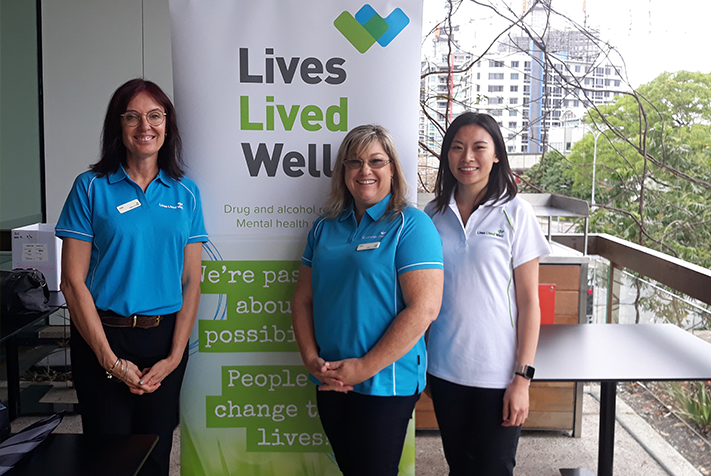
Our new Breakthrough for Families (BFF) program has seen more than 100 people across Queensland participate in free public information sessions with our BFF team in just two months.
This innovative program, funded by the Queensland Department of Child Protection, Youth and Women, aims to demystify issues around alcohol and drugs and help families develop strategies to support a family member with a drug or alcohol problem.
A big part of support to families is teaching them self care. The information the program provides not only informs and educates people, but also makes them feel safer and teaches them what they don’t have to accept. As one participant said: “Thank you, now I can do this. We don’t have to put up with certain behaviours, we don’t have to tolerate abuse”.
Our BFF team has delivered 23 two-hour sessions in the Health and Hospital Service regions across Townsville, Cairns, the Sunshine Coast and Brisbane as well as one-on-one sessions with families and individuals, and outreach as far west as Hughenden and Richmond in north Queensland.
The education sessions aim to empower family members to make positive decisions as individuals and as part of a family unit. The sessions are a safe environment for family members to ask questions, allay concerns, build a plan and move forward with renewed confidence.
More sessions are planned for next year – visit our website to see dates and locations. Individuals and families can self-refer through our website or by calling 1300 727 957.
Read more about Breakthrough for Families.
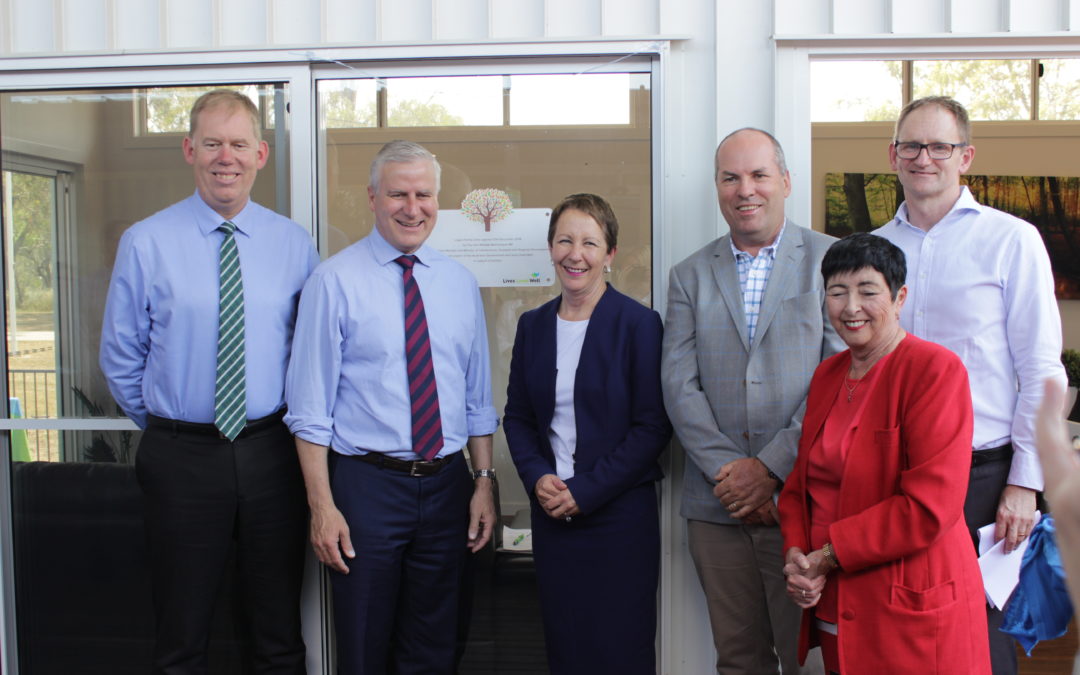
Dec 12, 2018
Lives Lived Well’s Logan House Family Recovery Units officially opened today, marking the end of the project’s construction and the launch of a first-of-its-kind drug and alcohol treatment option for families in Queensland.
The unique residential rehabilitation program makes it possible for parents to receive support while their young children stay with them. The units, which are located on the site of Logan House, south of Brisbane, will open to families in early 2019.
Conducting the official opening today were The Hon. Michael McCormack MP, Deputy Prime Minister and Minister for Infrastructure, Transport and Regional Development; The Hon Di Farmer, State Minister for Child Safety, Youth and Women and Minister for the Prevention of Family and Domestic Violence; and Lives Lived Well Chair Damian Wright.
The Australian Government invested $986,000 in the over $2 million construction of the units, jointly funding it with not-for-profit organisation, Lives Lived Well.
The Queensland Government has committed to providing $1.7 million in funding over three years to support the operation of the family alcohol and drug recovery program at the units.
Speaking at the launch, Mr McCormack said: “Addiction affects everyone in the community and especially children who have parents that are suffering. Untreated problems are often passed on to younger generations and this is a cycle we’re keen to disrupt through vital investment such as this.
“Giving parents with young children appropriate accommodation for their families will make it much easier for them to get the help they need, benefiting the entire family and broader community.”
Queensland Minister for Child Safety Di Farmer said annual funding of the Family Recovery Units of close to $600,000 was part of the Queensland Government’s $100 million Action on Ice plan.
“Almost one in three children coming into the care of Child Safety in Queensland have a parent with a current or previous methamphetamine problem, usually ice,” she said. “The road to recovery is not an easy one, and it’s a road travelled by entire families, not just the parent who is recovering.
“That is why this investment in the treatment of families who are struggling with substance use is so important – this is a life-changing program for Queensland families.”
Lives Lived Well Chair Damian Wright said from early next year, parents would be able to come and stay at the units with their young children to receive wrap-around support including specialist alcohol and drug counselling and information, group sessions and parenting, life and health support, whilst having appropriate care arrangements set in place for their children.
“We are grateful for the funding support of both state and federal governments, which allows us to work closely with families to turn their lives around after the harms and disruption of alcohol and drugs,” Mr Wright said.
For media inquiries, email Lives Lived Well’s Michelle Saftich on [email protected]





